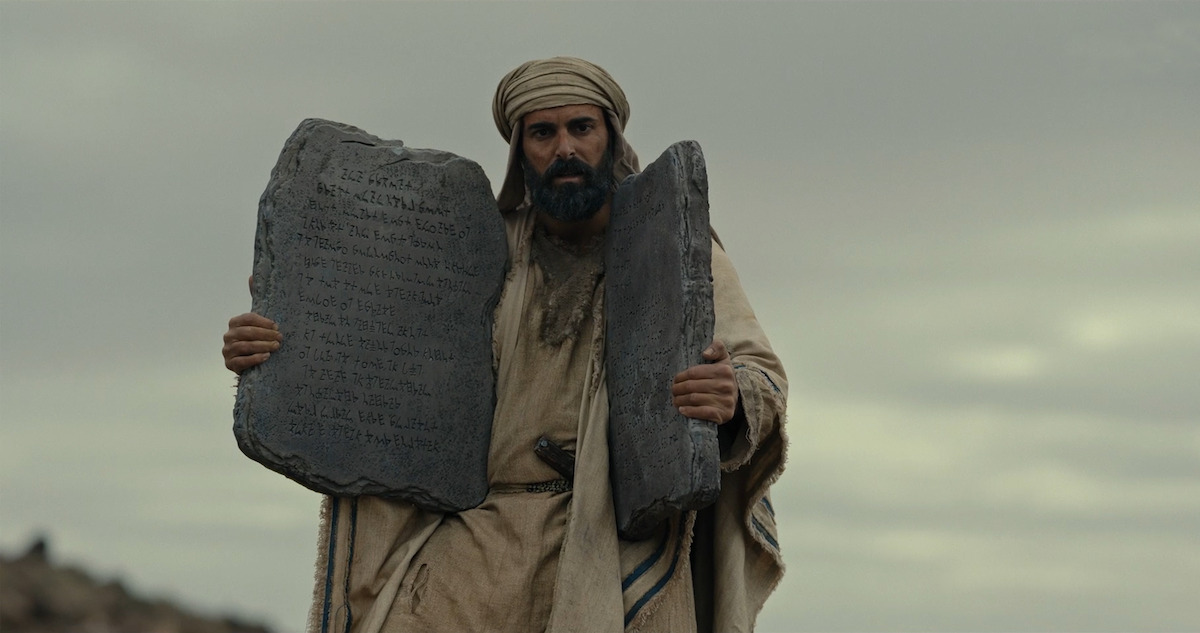Over this past weekend, I was looking to put something on my TV as background noise while I got some cleaning done. I was perusing Netflix and came across a mini-series called “The Testament of Moses.” I’ve already watched the series, which focuses on telling the beginning of Moses’ story through dramatizations and interviews with biblical and religious scholars from a variety of perspectives. However, what caught my eye this time was how the series was categorized – a documentary. It got me thinking about whether or not a series about the Torah, or a character in the Torah, could truly be a documentary. Sure, the answer to the question relies heavily on how you view the Torah: as history, as divine, as human, as metaphor. In calling “The Testament of Moses” a documentary, it certainly suggests that there is history in the text.
Though in Hebrew we call the book Torah, coming from the word “to teach,” the text has a number of different English names, one of which being “The Five Books of Moses.” Naming the Torah in connection with Moses puts a different lens on how someone might read the text. As “The Five Books of Moses,” we might put more emphasis on understanding the text from Moses’ perspective. Perhaps the five books of Aaron, Miriam, or Adam and Eve might tell the same story with different details and emphasis.
This week we start perhaps the truest testament of Moses. The book of Deuteronomy is the retelling of the story, now overtly from Moses’ perspective. After having led the Israelites for 40 years through the wilderness, Moses now begins his final series of speeches – reminding the Israelites of everything they’ve been through, everything they’ve learned, and all the tools that have been provided to them as they enter the Promised Land. Perhaps unlike Genesis through Numbers, Deuteronomy becomes not merely a recounting of events, but a testament, a heartfelt address to a generation on the brink of change.
The book is a masterclass in perspective. It is not the detached, theoretically unbiased narration of a historian, but the intimate, personal reflection of a man who has lived through every chapter of his people’s journey. His words are imbued with a depth of feeling and understanding that only comes from shared trials and triumphs. He speaks not just as a leader, but as a father, a mentor, and a friend.
Moses’ perspective is marked by a profound sense of responsibility. He feels a deep obligation to prepare his people for the challenges that lie ahead. He recounts their history, not as a dry recitation of facts, but as a moral compass, a guide for future generations. The wilderness wanderings, the miraculous provisions, the rebellions and punishments – all are presented as lessons, as opportunities for growth and reflection, and need to be remembered if the Israelites are to be successful without Moses.
Yet, Moses’ perspective is also one of humility. He is acutely aware of his own limitations, his mistakes, and his mortality. He does not shy away from self-criticism, admitting his failings as a leader. This honesty is refreshing, making him a relatable figure, despite his extraordinary status. His humility is a powerful counterpoint to his authority, creating a sense of authenticity that resonates deeply.
As Moses prepares to die, his words become a sort of spiritual final will and testament. He pleads with his people to remain faithful to God and to follow God’s commandments. He paints an honest picture of the Promised Land, a land flowing with milk and honey, but also a land filled with potential pitfalls. He warns them of the dangers of idolatry, of forgetting their heritage, of neglecting justice and compassion.
In the end, Deuteronomy is not just a book of laws and commandments, it is a love letter from a leader to his people. It is a final encouragement, a plea for continued faith and unity. Through Moses’ eyes, we see the guidance of prior generations and the commandments of God as gifts, a roadmap to a life of meaning and purpose. His words now, as then, continue to inspire and challenge us, reminding us that perspective is essential to telling our shared stories and that the journey continues to unfold toward a better future.

